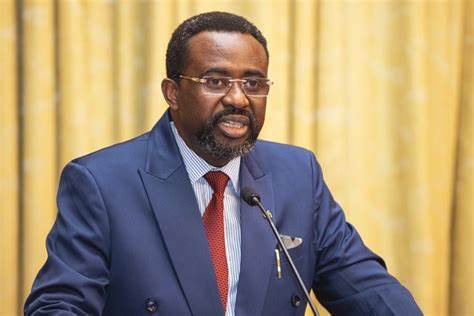The Bank of Ghana (BoG) will begin regulating cryptocurrency platforms and virtual asset providers by the end of September 2025.
BoG Governor Dr. Johnson Asiama made this announcement during the African Leaders and Partners Forum organized by the EBII Group on the sidelines of the IMF/World Bank Spring Meetings in Washington, D.C.
Dr. Asiama stated that the central bank’s ability to enforce regulation hinges on the anticipated passage of the Virtual Asset Providers Act, which will formally authorize the BoG to license and oversee operators in the digital asset ecosystem.
“To enhance supervision in this rapidly evolving space, we are setting up a specialized unit within the Bank of Ghana focused solely on digital assets. This is a technology we cannot ignore, so we must act swiftly to regulate it,” he said.
The forum gathered finance, trade, and agriculture stakeholders from Africa, the United States, Europe, and the Americas to deliberate on strategies to deepen trade and investment ties between Africa and the U.S.
Collaboration with the SEC
The Securities and Exchange Commission (SEC) has also made strides toward crypto oversight. On March 27, SEC Director-General Dr. James Klutse noted during a PM Express Business Edition appearance that the Commission is working actively to finalize a regulatory framework for the industry.
The BoG had previously cautioned the public in January 2018, declaring that cryptocurrencies like Bitcoin were not recognized as legal tender in Ghana and urging financial institutions to steer clear of such transactions.
Ghana’s Strategic Financial Direction
Dr. Asiama also used the platform to outline Ghana’s broader economic vision. He emphasized the importance of macroeconomic stability and strategic financial reforms as key pillars for attracting investor confidence and reshaping Africa’s position in the global economy.
“This is part of a four-pronged strategy by the Bank of Ghana to redefine US-Africa economic engagement,” he explained.
The central bank’s ongoing efforts include taming inflation, boosting foreign reserves, and reinforcing fiscal discipline. According to Dr. Asiama, these policies, coupled with bold institutional reforms across African central banks, are laying the groundwork for greater financial transparency, autonomy, and resilience.
He concluded by stressing the need for robust risk management and systemic stability to attract sustainable capital inflows and protect the continent from external economic shocks.














